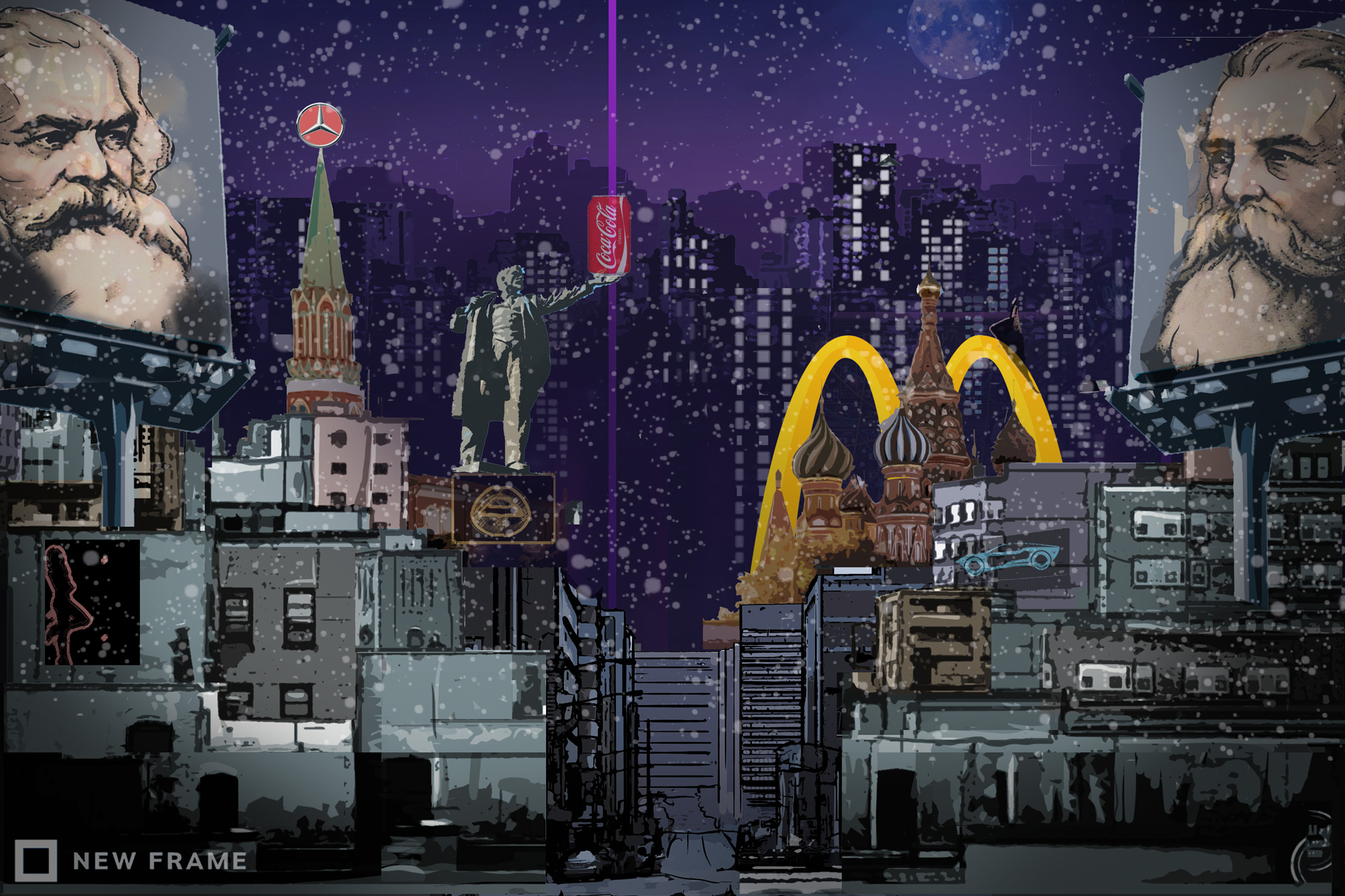Text Messages | Convulsions and communism
Every few years, the economy reminds us that capitalism is not a foregone conclusion and that Manifesto of the Communist Party remains relevant 172 years after it was first published.
Author:
20 February 2020

As far as beginnings go, it is one of the most recognisable, memorable and evocative. It has spurred millions to action, either in seeking to fulfil or to oppose what it conjures. Subject, verb, object and an elaboration of the subject, all captured in nine words.
“A spectre is haunting Europe – the spectre of Communism.”
Thus begins Manifesto of the Communist Party by Karl Marx and Friedrich Engels, more often referred to as the Communist Manifesto, published in London on 21 February 1848. A French version was published in Paris just before the revolutionary events there in June 1848. It first appeared in English in 1850 in the Red Republican (the first edition was in German) and in Russian in 1869.
The German edition of 1883 also marked the death of Marx in March of that year, Engels writing: “The preface to the present edition I must, alas, sign alone. Marx, the man to whom the whole working class of Europe and America owes more than to anyone else, rests at Highgate Cemetery [London] and over his grave the first grass is already growing.”
Related article:
Marx and Engels had a simple four-part structure to the Manifesto. In the first they presented a history of society from the Middle Ages onwards as an account of class society, adding a prophetic end: the triumph of the proletariat over the bourgeoisie. Part two is an intensive examination of communism: communists within the proletariat, the nature of communist revolution and a future communist society. In the third, the authors are withering in their critique of other forms of socialism, broadly characterised as reactionary, petit-bourgeois and utopian. Part four is a primer of communist tactics to be used against other parties, ending with words as ringing and indelible as those with which the Manifesto begins:
“The proletarians have nothing to lose but their chains. They have a world to win.
“WORKING MEN OF ALL COUNTRIES, UNITE!”
It has been fashionable since the fall of the Berlin Wall and the break-up of the Soviet Union to treat communism, Marx and Engels as exhibits in a museum of extinct objects, alongside the dodo and the dinosaur. But every few years the convulsions of the world’s economy remind us that the triumph of capitalism is if anything still very much a work in progress, moving uncertainly towards an ambiguous finale.
150th anniversary
Looking back to 1998 and the 150th anniversary of the publication of the Manifesto, I found the following in one of the weekly columns I wrote for a Sunday newspaper. It shows the fluctuations in the reputations of communism and capitalism, foes until the end of the world finally parts them in triumph and defeat.
“You have to hand it to communism: when it fell, it did so in the most dramatic and televisually friendly way, with one of its most potent symbols, the Berlin Wall, coming down brick by brick.
“Capitalism, on the other hand, is proving something of a spoilsport and a malingerer: it will not go; it does not wish to be an ex-system. The leader of the world’s most powerful nation launches armadas of financial lifeboats everywhere, gasps life into a monetary fund here, pumps up a world bank there.
“This epic tableau is fascinating, especially for an ‘unrepentant Marxist’, the would-be epithet that irate letter-writers to this and its sister newspapers have used to describe me. It turns out their triumphalism and assumptions that capitalism has won unequivocally and eternally might just be a little premature.
“For the unthinkable has now happened: seismic turmoil on world bourses, cataclysmic collapse of former tiger economies in southeast Asia, widespread evidence that capitalism is the greatest threat of all to democracy. Nowhere in the previously booming southeast and east Asian countries can democracy be said to have taken root: instead its appearance has been as fleeting as the passing prosperity of the region.
“So the end of history, so definitively proclaimed by Francis Fukuyama in his 1992 tome The End of History and the Last Man, will have to be postponed. Fukuyama argued that History (as opposed to its diminutive relative history) was resolved because a clear winner had emerged in the great financial evolutionary race.
Related article:
“Liberalism and the markets had won over the outré ideas of one Karl Marx. In the post-Marxist millennium that beckoned, man would be born free to embrace the charms of capitalism. Tom Wolfe went so far as to describe Fukuyama’s thesis as a ‘historical and philosophical setting for the 21st century’.
“Few imagined that the bearded one would return with such vengeance in 1998, the 150th anniversary of the publication of the Communist Manifesto. No one in the West could have imagined that capitalism would prove far more destructive to Russia than the Bolsheviks, cold winters, vodka and the Cold War ever were.
“But all of that has happened, and more. Russia is the new sick man of Europe, infected by capitalist cancer … None of the International Monetary Fund’s horsemen has a ready answer now to the vagaries of the world financial system they have so arrogantly attempted to manipulate.
“Even George Soros, who has made more money than can be counted by currency speculation, is calling halt. Controls must be instituted, he argues. And, more pleasingly yet, Soros contends that free market capitalism is just as much an enemy of his beloved, Karl Popper-conceived Open Society as are communism, nationalism and fundamentalism. He is not alone.”


